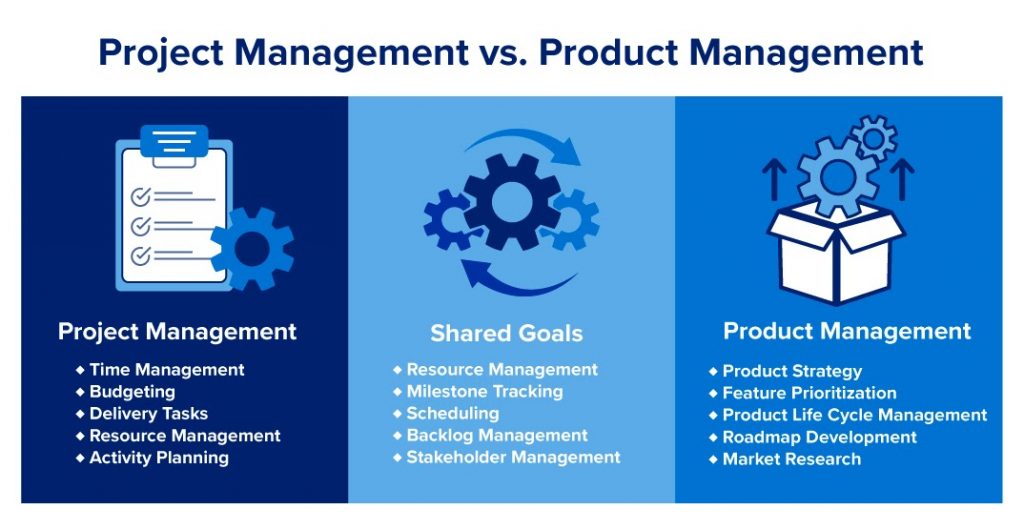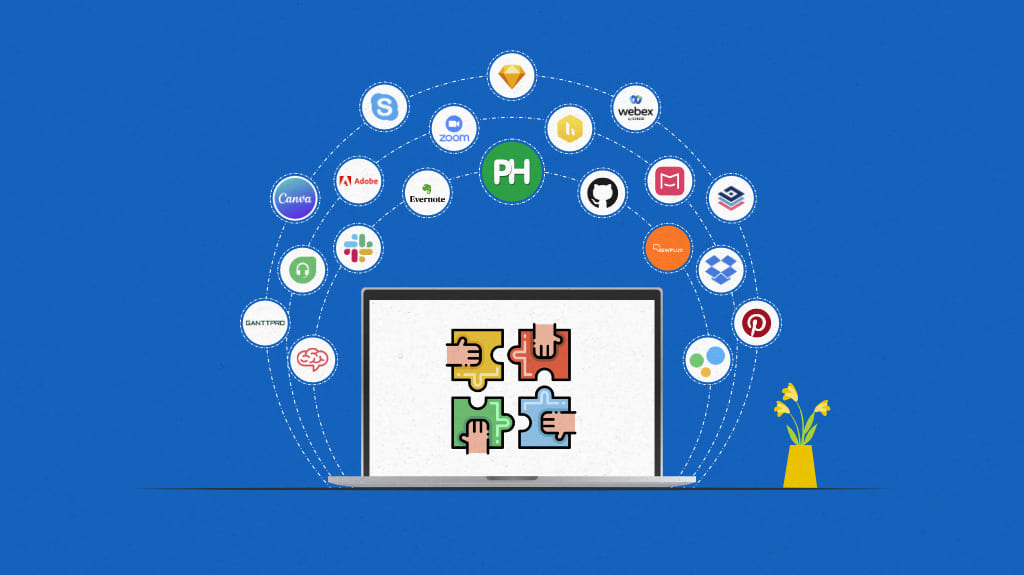
Published: Dec 1, 2024
How to Find Remote Job Opportunities by Industry: A Comprehensive Guide
How to Find Remote Job Opportunities by Industry: A Comprehensive Guide
Let’s face it, the job hunt can be a real pain in the… well, you know where. I’ve been there, scouring job boards until my eyes crossed. But here’s the thing: finding remote work doesn’t have to be like looking for a needle in a haystack. I’ve cracked the code, and I’m about to spill the beans on how to land that sweet work-from-home gig in your industry. Ready to ditch the commute and work in your PJs? Let’s dive in!
TLDR: What are the best strategies for finding remote jobs in specific industries?
1️⃣ Leverage industry-specific job boards and remote work platforms
Use niche job boards tailored to your industry alongside popular remote work platforms like We Work Remotely, Remote.co, and FlexJobs to maximize your chances of finding relevant opportunities.
2️⃣ Network strategically within your industry
Attend virtual industry events, join professional online communities, and engage with industry leaders on social media to uncover hidden job opportunities and make valuable connections.
3️⃣ Tailor your skills and resume for remote work
Highlight remote-friendly skills like self-motivation, digital communication, and time management. Customize your resume to showcase how your industry expertise translates to a remote environment.
Table of Contents
- Understanding the Remote Job Landscape
- Top Industries for Remote Work
- How to Find Remote Jobs in Your Industry
- Overcoming Challenges in Remote Job Hunting
- Preparing for Remote Work Success
Understanding the Remote Job Landscape
The remote work revolution is in full swing, and it’s changing the game for job seekers across industries. Let’s dive into the nitty-gritty of what’s happening in the world of remote work.
Remote Work Growth
Remote work isn’t just a passing trend – it’s here to stay. According to a study by the National Bureau of Economic Research, the percentage of remote job postings has skyrocketed. In 2019, only about 4% of high-paying jobs were remote. Fast forward to 2022, and that number jumped to a whopping 9%. That’s more than double in just three years!
Industry Leaders in Remote Work
Not all industries are created equal when it comes to remote work. Some sectors are embracing the work-from-home lifestyle more than others. Here’s a breakdown of the top industries hiring remote workers:
Computer and Mathematical Fields

- Leading the pack with 35% of job postings offering remote work
- Think software developers, data analysts, and IT specialists
Business and Financial Operations

- Coming in strong with 16% of jobs being remote
- Roles like accountants, financial analysts, and project managers
-
- 15% of legal jobs are now remote
- Paralegals, legal researchers, and even some attorneys are working from home
-
- 14% of management roles can be done remotely
- From team leaders to executives, management is going virtual
-
- 11% of jobs in this field are remote
- CAD designers and civil engineers are finding ways to work from anywhere
The Software Development Boom
If you’re in the tech world, you’re in luck. Software development is the most remote-friendly job out there. In 2021, a staggering 62.8% of software developer jobs were remote. The U.S. Bureau of Labor Statistics predicts this trend will continue to grow through 2031.
Why These Industries?
You might be wondering why these particular fields are leading the remote work charge. Here’s the deal:
Digital Nature: These jobs often rely heavily on computers and online tools, making the transition to remote work smoother.
Cost Savings: Companies can cut down on office space and overhead costs by allowing employees to work from home.
Global Talent Pool: Remote work lets companies hire the best talent, regardless of location.
Employee Demand: Workers are pushing for more flexibility, and companies are listening to stay competitive.
The Future of Remote Work
The remote job landscape is constantly evolving. While some companies are pushing for a return to the office, many are doubling down on remote work. Hybrid models are also gaining traction, offering a mix of in-office and remote work.
As we move forward, keep an eye on emerging trends like:
- Virtual Reality Offices: Companies like Meta (formerly Facebook) are investing in VR technology for remote collaboration.
- AI-Powered Remote Tools: Expect to see more sophisticated tools for remote project management and team communication.
- Remote Work Regulations: Governments are starting to create laws specifically for remote workers, addressing issues like taxes and worker rights.
Understanding this landscape is crucial for job seekers. By knowing which industries are embracing remote work and why, you can better position yourself to land that dream work-from-home job. So, dust off your resume, polish your online presence, and get ready to join the remote work revolution!
Top Industries for Remote Work
The remote work landscape is booming, and certain industries are leading the charge. Let’s break down the top sectors where you’re most likely to snag that dream work-from-home gig.
Computer and Mathematical Fields
No surprise here – tech is king when it comes to remote work. A whopping 35% of job postings in this field offer remote options. Why? Because most of the work can be done with just a laptop and a solid internet connection.
- Popular Remote Roles:
- Software Developer The holy grail of remote work. In 2021, 62.8% of software dev jobs were remote!
- Data Analyst
 Crunching numbers from the comfort of your couch.
Crunching numbers from the comfort of your couch. - IT Support Specialist
 Fixing tech issues without ever leaving home.
Fixing tech issues without ever leaving home.
Business and Financial Operations
Money talks, and it’s saying “work from home.” About 16% of jobs in this sector are now remote.
- Hot Remote Positions:
- Accountant
 Balancing books doesn’t require an office.
Balancing books doesn’t require an office. - Financial Analyst
 Predicting market trends from your home office.
Predicting market trends from your home office. - Project Manager
 Keeping teams on track, virtually.
Keeping teams on track, virtually.
- Accountant
Legal Professions
Even the law is getting flexible, with 15% of legal jobs going remote.
- Remote Legal Roles:
- Paralegal
 Research and document prep can easily be done remotely.
Research and document prep can easily be done remotely. - Legal Researcher
 Digging into case law from home.
Digging into case law from home. - Contract Lawyer
 Reviewing and drafting contracts in your PJs.
Reviewing and drafting contracts in your PJs.
- Paralegal
Management Positions
Turns out, you can lead a team without being in the same room. 14% of management roles are now remote.
- Remote Management Jobs:
- Product Manager
 Guiding product development from afar.
Guiding product development from afar. - Marketing Manager
 Crafting strategies from your home office.
Crafting strategies from your home office. - HR Manager
 Managing people… without seeing them in person.
Managing people… without seeing them in person.
- Product Manager
Architecture and Engineering
Even hands-on fields are going digital. 11% of jobs in this industry offer remote options.
- Remote Architecture and Engineering Gigs:
- CAD Designer
 Drafting designs digitally.
Drafting designs digitally. - Civil Engineer
 Planning infrastructure projects remotely.
Planning infrastructure projects remotely. - Quality Engineer
 Ensuring standards are met, virtually.
Ensuring standards are met, virtually.
- CAD Designer
Why These Industries?
These sectors are leading the remote work revolution for a few key reasons:
- Digital Transformation: They’ve embraced technology that allows for seamless remote collaboration.
- Cost Savings: Companies save on office space and overhead.
- Global Talent Pool: They can hire the best, regardless of location.
- Employee Demand: Workers want flexibility, and these industries are listening.
The Remote Work Ripple Effect
The rise of remote work in these industries is having a domino effect. As more companies go remote, they need tools and services to support this new way of working. This has led to a boom in:
- Remote Collaboration Tools
 Think Slack, Zoom, and Trello.
Think Slack, Zoom, and Trello. - Cybersecurity Services Protecting all those home offices from digital threats.
- Cloud Computing Enabling access to work files from anywhere.
The Future is Flexible
While these industries are leading the pack, remote work is spreading across all sectors. Even traditionally in-person fields like healthcare are finding ways to go remote with telemedicine.
The takeaway? If you’re hunting for a remote job, focus on these top industries, but don’t limit yourself. The remote work revolution is just getting started, and opportunities are popping up everywhere. Keep your skills sharp, your Wi-Fi strong, and your eyes peeled for that perfect work-from-home gig!
How to Find Remote Jobs in Your Industry
Finding remote work in your industry doesn’t have to feel like searching for a needle in a digital haystack. I’ve been through the remote job hunt grind, and I’m here to share some insider tips that’ll help you land that dream work-from-home gig. Let’s dive into the strategies that actually work.
Leveraging Job Boards and Remote Work Platforms
First things first, you need to know where to look. Generic job boards are okay, but specialized platforms can be gold mines for remote opportunities.
-
- This site is a powerhouse for tech and digital marketing roles.
- Pro tip: Set up job alerts to get notified about new postings instantly.
-
- Great for a wide range of industries, from education to healthcare.
- They vet all listings, so you won’t waste time on scams.
-
- Focuses on fully remote positions across various sectors.
- Check out their Q&A section for valuable insights from remote workers.
Industry-Specific Job Boards
- For tech roles, try Stack Overflow Jobs or GitHub Jobs.
- Writers and editors should check out ProBlogger Job Board.
Networking Strategies for Remote Job Seekers
Networking isn’t just for in-person events anymore. Here’s how to build connections virtually:
-
- Join industry-specific groups and engage in discussions.
- Follow companies you’re interested in and connect with their employees.
Virtual Industry Events
- Attend online conferences and webinars in your field.
- Don’t just lurk – ask questions and participate in chat discussions.
-
- Many industries have dedicated Slack channels for professionals.
- For example, designers can join the Designer Hangout Slack community.
-
- Follow industry leaders and engage with their content.
- Use hashtags like #RemoteWork or #YourIndustry to find relevant conversations.
Optimizing Your Online Presence
In the remote job market, your online presence is your first impression. Make it count!
LinkedIn Profile
- Highlight remote work skills like self-motivation and digital communication.
- Use keywords relevant to your industry and remote work in your profile.
Personal Website or Portfolio
- Showcase your best work and include testimonials from past clients or employers.
- For developers, maintain an active GitHub profile with personal projects.
Professional Social Media
Tailoring Your Application for Remote Positions
When you find that perfect remote job listing, here’s how to make your application stand out:
Remote-Friendly Resume
- Highlight any previous remote work experience or relevant skills.
- Quantify your achievements to show your ability to work independently.
Customized Cover Letter
Portfolio Tailoring
- If you’re in a creative field, customize your portfolio to showcase work relevant to the job.
- For writers, include samples that demonstrate your ability to write for online audiences.
Leveraging Freelance Platforms
Sometimes, the path to a full-time remote job starts with freelance work:
-
- Great for a wide range of industries, from writing to web development.
- Start with smaller projects to build your reputation.
-
- For experienced professionals in tech, finance, and design.
- Rigorous screening process, but high-quality clients.
-
- Ideal for offering specific skills or services.
- Create gigs that showcase your expertise in your industry.
Remember, finding a remote job is often about persistence and creativity. Don’t be afraid to reach out directly to companies you admire, even if they’re not actively hiring. Many remote positions are filled through networking and personal connections.
Lastly, keep your skills sharp and stay updated on industry trends. The remote job market is competitive, but with the right approach, you can stand out from the crowd and land that dream work-from-home position in your industry. Happy job hunting!
Overcoming Challenges in Remote Job Hunting
Let’s face it, hunting for a remote job can feel like trying to find a Wi-Fi signal in the middle of the desert. But don’t worry, I’ve been there, done that, and I’m here to share some real-world strategies to help you navigate the choppy waters of remote job searching.
Dealing with Increased Competition
With more people than ever vying for remote positions, standing out is crucial. Here’s how to rise above the crowd:
Develop a Unique Skill Set
- Learn a niche skill in your industry. For example, if you’re in marketing, master a tool like Google Data Studio for creating interactive reports.
- Take online courses to stay ahead of industry trends. Platforms like Coursera or Udemy offer courses in almost every field.
Create a Personal Brand
- Start a blog or YouTube channel showcasing your expertise. I once landed a job because the hiring manager stumbled upon my blog about productivity hacks for remote workers.
- Engage in industry discussions on platforms like Reddit or Quora. Becoming a top contributor can significantly boost your visibility.
Showcasing Remote Work Skills
Employers want to know you can thrive in a remote environment. Here’s how to prove it:
Highlight Your Digital Proficiency
- Mention specific tools you’re comfortable with, like Slack for communication or Trello for project management.
- If you’ve completed any remote work certifications, such as the Remote Work and Virtual Collaboration Certificate from Coursera, make sure to include them in your resume.
Demonstrate Self-Motivation
- Include examples of self-directed projects or initiatives you’ve taken on in previous roles.
- If you’ve ever freelanced or run a side hustle, highlight how you managed your time and deliverables independently.
Navigating Time Zone Differences
Working across time zones can be tricky, but showing you’re prepared can give you an edge:
Showcase Your Flexibility
- Mention any experience you have working with global teams or clients.
- Highlight your willingness to adjust your schedule when needed. I once had a candidate who mentioned they were happy to take early morning calls with our European team, which really impressed us.
Utilize Time Management Tools
- Familiarize yourself with tools like World Time Buddy or Every Time Zone to easily coordinate across time zones.
- Mention your proficiency with asynchronous communication tools like Loom for video messages or Notion for collaborative documentation.
Addressing Employer Concerns
Employers often have specific worries about remote workers. Here’s how to proactively address them:
Productivity and Accountability
- Share specific metrics or achievements from previous remote work experiences. For instance, “Increased team productivity by 20% by implementing a new project management system while working remotely.”
- Mention your home office setup and how you minimize distractions. When I was job hunting, I included a photo of my ergonomic home office in my portfolio, which sparked positive conversations in interviews.
Communication and Collaboration
- Highlight experiences where you’ve successfully collaborated on remote teams.
- Offer to do a trial project or a paid test week to demonstrate your remote work capabilities. This approach helped me land my current role when I was competing against local candidates.
Technical Proficiency
- Be prepared to discuss your internet setup and backup plans for outages.
- Familiarize yourself with common remote work security practices, like using a VPN or two-factor authentication.
Remember, overcoming these challenges is all about preparation and presentation. By anticipating potential concerns and showcasing your remote-ready skills, you’ll be well-positioned to land that dream work-from-home job. Keep at it, stay positive, and don’t forget to celebrate the small wins along the way. Before you know it, you’ll be sending that “I got the job!” text from the comfort of your home office.
Preparing for Remote Work Success
Landing a remote job is just the beginning. Now it’s time to set yourself up for success in your new work-from-home role. I’ve been working remotely for years, and I’ve learned a thing or two about thriving in a virtual environment. Let’s dive into the key areas you’ll need to focus on to become a remote work rockstar.
Setting Up Your Home Office
Your workspace can make or break your remote work experience. Here’s how to create a productive home office:
Ergonomic Furniture
- Invest in a good chair. Your back will thank you. I swear by my Herman Miller Aeron chair. It’s pricey, but it’s been a game-changer for my posture and comfort.
- Consider a standing desk. I use the Fully Jarvis adjustable desk, which lets me switch between sitting and standing throughout the day.
Lighting
- Natural light is best. Position your desk near a window if possible.
- Invest in a good desk lamp. The BenQ e-Reading LED Desk Lamp has been a lifesaver during late-night work sessions.
Tech Setup
- Dual monitors can boost productivity. I use two Dell UltraSharp monitors for maximum screen real estate.
- A reliable headset is crucial for video calls. The Jabra Evolve 75 has excellent noise-cancellation features.
Mastering Remote Communication
Effective communication is the lifeblood of remote work. Here’s how to nail it:
Video Call Etiquette
- Invest in a good webcam. The Logitech C920 offers great quality for a reasonable price.
- Always use headphones to prevent echo.
- Be mindful of your background. A plain wall or a tidy bookshelf works well.
Async Communication
Regular Check-ins
- Schedule regular one-on-ones with your manager and team members.
- Use tools like Donut for Slack to facilitate virtual coffee chats with colleagues.
Managing Your Time and Productivity
Without the structure of an office, staying productive can be challenging. Here’s how to stay on track:
Time Blocking
- Use a digital calendar like Google Calendar to schedule your day in blocks.
- Try the Pomodoro Technique using apps like Forest to maintain focus.
Task Management
Establish Boundaries
- Set clear work hours and communicate them to your team.
- Create a shutdown ritual to signal the end of your workday. I like to take a short walk around the block to transition from “work mode” to “home mode.”
Staying Connected with Your Team
Building relationships remotely requires extra effort. Here’s how to stay connected:
Virtual Team Building
- Participate in virtual team building activities. My team loves using Jackbox Games for fun, interactive sessions.
- Start meetings with icebreakers or casual catch-ups to foster personal connections.
Celebrate Wins
- Use team chat channels to acknowledge achievements, big and small.
- Consider a virtual reward system. My team uses Bonusly to give each other points for great work, which can be redeemed for real rewards.
Share Knowledge
- Organize virtual lunch-and-learns where team members can share skills or interesting projects.
- Create a team wiki using tools like Notion to document processes and share knowledge.
Remember, transitioning to remote work is a journey, not a destination. It might take some time to find your groove, and that’s okay. Be patient with yourself, stay open to feedback, and don’t be afraid to experiment with different tools and techniques. With the right setup and mindset, you’ll be crushing your remote work goals in no time. Now, go forth and conquer the remote work world!







